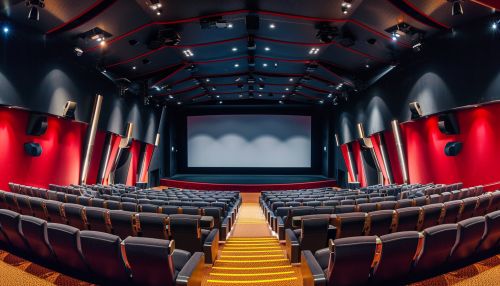21st Century in Film
Overview
The 21st century has been a significant era in the history of film. This period has witnessed the evolution of technology, the rise of new genres, and the emergence of new cinematic styles. The 21st century in film has been marked by the proliferation of digital technology, the dominance of blockbuster films, the rise of independent cinema, and the increasing globalisation of the film industry.


Technological Advances
The 21st century has seen significant technological advances in film. The transition from analog to digital technology has revolutionized the way films are made, distributed, and viewed. The advent of digital cinematography has made filmmaking more accessible and affordable, leading to an increase in independent productions. The development of computer-generated imagery (CGI) has also expanded the possibilities for visual storytelling, allowing filmmakers to create more complex and visually stunning films.
Blockbuster Dominance
The 21st century has been characterized by the dominance of blockbuster films. These high-budget, high-grossing films have become the mainstay of the mainstream film industry, particularly in Hollywood. The success of franchises such as Harry Potter, The Lord of the Rings, and Marvel Cinematic Universe has demonstrated the commercial viability of sequels and cinematic universes. This trend has also been driven by the growth of the global box office, with blockbuster films often designed to appeal to international audiences.
Rise of Independent Cinema
Alongside the dominance of blockbusters, the 21st century has also seen the rise of independent cinema. The accessibility of digital technology has enabled more filmmakers to produce and distribute their own films, leading to a greater diversity of voices and stories in cinema. Film festivals such as Sundance and Cannes have played a crucial role in promoting independent films and providing a platform for emerging filmmakers.
Globalisation of the Film Industry
The 21st century has witnessed the increasing globalisation of the film industry. The growth of international film markets, particularly in Asia, has led to a greater diversity of films being produced and distributed worldwide. The rise of Bollywood and Nollywood has challenged the dominance of Hollywood, while the success of foreign language films such as Parasite has demonstrated the global appeal of non-English language cinema.
Future Trends
Looking ahead, the 21st century in film is likely to be shaped by ongoing technological innovations, changing audience preferences, and the continued globalisation of the film industry. The rise of streaming services such as Netflix and Amazon Prime has already begun to disrupt traditional distribution models, while the increasing importance of representation and diversity in film is likely to influence the types of stories that are told on screen.
